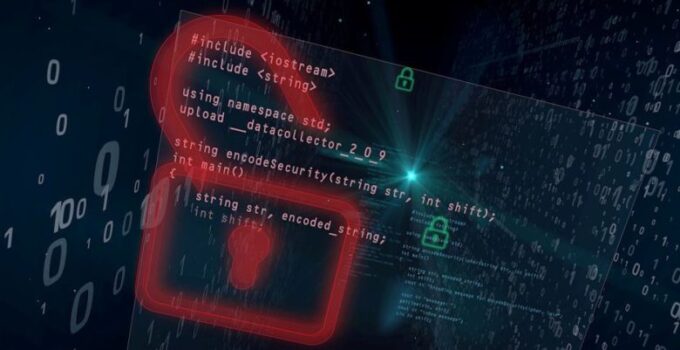With the growth of online shopping and demand for consumers, the eCommerce industry is developing at a rapid pace than ever before. However, there are plenty of risks and challenges faced by the retail industry, especially when it comes to maintaining the security of the websites as they may be prime targets of hacking. Cybersecurity breaches and data thefts are becoming more common among both small and medium-sized organizations that are attacked by hackers.
The necessity of cybersecurity for eCommerce
Cybersecurity is critical for all eCommerce sites as without their existence and implementation of the security protocols; the owners might be putting themselves and their valuable customer data at a huge risk through payment frauds. According to statistics, 1 in 5 online enterprises become victims of fraud every year, and they are forced to close their business within six months. Data breaches are most harmful to any online business and might affect the reputation of the website as customers might fear losing their precious information. Check this post for more information on “How to check website reputation”
Cybersecurity damage related costs are said to cost $6 trillion annually for companies by 2024, and only about 38% of the enterprises are equipped to handle cyberattacks. Most eCommerce sites store customers’ information regarding their login details, bank account, credit/debit card details, and email addresses. Thus, eCommerce business owners may be held accountable by industry regulators if their data is compromised, and they may be answerable to customers and employees.
Top Cybersecurity tips to protect your eCommerce business from hackers

Img source: oexebusiness.com
Choose a reliable eCommerce platform
You need to check the hosting company and opt for reputed eCommerce vendors and ensure that they are reliable and trustworthy. Some of the hosting providers may offer cheaper options, which may seem lucrative, but they may not be equipped with the best security features to offer protection against hackers. There may be WordPress plugins that have inherent security weaknesses, which you may need to check before integrating it into the website.
Use secure encryption mechanism
Therefore, many eCommerce companies rely on EV SSL certificates to ensure that their website is secure and legitimate, along with the highest validation benefit. In addition, these certificates also encrypt sensitive financial information and data, which is required for conducting secure transactions and ensuring greater confidence among your customers. EV SSL certificates can also help to boost your website rankings on the search engine results page as Google favors HTTPS websites.
Opt for strong passwords
Most websites that use weak passwords are vulnerable to attacks from hackers, and hence it’s important to choose passwords, which might be difficult to guess. Create long and smart passwords using a combination of capital letters, symbols, including numbers that may be safe and not accessible by hackers. Change passwords regularly, and especially if you are working with a third-party contractor, you need to ensure that you change the password soon after they have had access to your website.
Protect your website against DDoS attacks

Img source: cnbc.com
There has been an increasing number of DDoS attacks as a result of plenty of HTTP requests and server failure enabling hackers to launch attacks against websites. It’s necessary to have an incident response plan which can be implemented along with cryptographic threats accessing your devices with the purpose of mining for cryptocurrency.
Audit your eCommerce programs
Make sure to audit any of the eCommerce platforms which you may be using, including Magento or Marketo or Salesforce, along with your eCommerce website. It’s important to fix all your bugs and upgrade your programs to the latest version as quickly as possible. External vendors can help in keeping your store updated with the new version without leading to website outage or downtime. With almost $96 billion spent alone on cybersecurity issues by companies, it may be essential to curtail your expenses by outsourcing your routine security tasks.
Update your security policies
The security of your eCommerce website depends on several factors, and company policies play a crucial role in this regard. You need to prioritize and safeguard your customers’ data and privacy by involving all key decision-makers in the process. It’s a good practice providing staff training in device management and cybersecurity as part of your company policy. Use two-factor authentication for your customers by relying on passwords that are stronger, which are less vulnerable to attacks from hackers.
Include a third-party payment processor

Img source: regdesk.co
Most small businesses will not have the money nor resources to afford an IT team to take care of their security needs. However, it’s not recommended to store banking information on your website and instead use a third-party payment system for managing your transaction-related tasks. This can make it safe for customers to make transactions with greater confidence and security.
Keep track of all transactions
Online store owners have sound knowledge about their store activities, and most often, the billing and shipping addresses may not match with each other. The physical location of the customers indicates if their transaction is legitimate or not. Ecommerce software provides IP address tracking, which enables online retailers to block transactions from suspicious individuals. There is a greater incidence of frauds from customers with emails provided by free service providers.
Update your eCommerce software
Most software providers offer regular updates that can fix loopholes in their platforms, and store owners need to install them to reduce vulnerabilities arising from malware and viruses. Ecommerce stores need to use high-quality anti-malware to protect their websites against such increasing attacks from hackers.
Conclusion
Cybersecurity for eCommerce companies is crucial due to the number of online threats faced by them as they deal with sensitive information. Hence, website owners need to focus on preventing DDoS attacks, boost the security of their website using solid data encryption methods, and follow the best security practices to safeguard their data and information from intruders.




